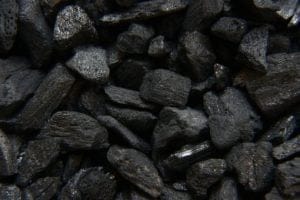
Another health fad has come along, but it might seem weirder than most. People are using activated charcoal for several health gains.
Although, research suggests that uses of activated charcoal like deodorant, toothpaste, and stomach relief are not what it’s made for. Clinical toxicology reviews show activated charcoal as a method of absorption that decreases the amount of poison or drugs in the body. Now that people use it in other, poorly researched ways, there are actually some dangers to using activated charcoal.
What is charcoal? What is activated charcoal?
Charcoal can be made from any materials that have carbon in them. For example, you can heat up sawdust, coconut shells, or coal to high temperatures (600-900°C) and turn them into “charred” versions of these materials, containing little water. This form is usually pretty close to pure carbon.
From there, the charcoal gets “activated” with steam, oxygen, chemicals, or acids. As a result, it expands the surface area of the charcoal. This makes it stop the absorption of toxins really well, which explains its ancient use for stopping overdoses or poisonings.
How are people using activated charcoal?
Even though there is not a lot of research to back up new charcoal uses, people are taking it for reasons other than poisoning prevention.
Deodorant
For example, people are using charcoal-based deodorants in order to naturally prevent body odor. It is also said to fight oil production, pore clogging, and perspiration as well as the feeling of wetness that comes from it.
Toothpaste
Activated charcoal toothpaste is another trend that is popping up. Supposedly, it whitens teeth by absorbing plaque and restores pH balance in the mouth.
Stomach relief
Additionally, a company called the Village Juice Co. markets one of their juice cleanses as a strong detox because it contains charcoal. “Black Magic” is the name of the juice because of its ability to clear your digestive tract of harmful toxins. This makes sense based on charcoal properties, but there is no real research to back the packaged serving size and recreational use.
Other brands make charcoal pills in order to reduce gas, reduce bloating, and aid digestion. Again, this has some logic to it because charcoal does clear out the inside of the body for overdosing patients, especially when it comes to alcohol. The only places where it can stop toxins from absorbing are the stomach and small intestine. Maybe, with more research, this will prove to be a scientific way to relieve everyday stomach pain.
Hangover prevention
As previously mentioned, some hospitals use activated charcoal to stop alcohol poisoning before pumping the stomach. Some charcoal fans use similar logic to prevent hangovers. Websites state that this is not because it reduces your blood alcohol content, even though it prevents overdosing. Instead, it removes ingredients that are closely related to toxins that make people feel sicker the next day. For example, the charcoal absorbs ingredients in wine like sugar and sulfites, making your hangover less painful because you only really process the alcohol itself.
Click to read the full article, including the risks of activated charcoal, on askdrmanny.com.
